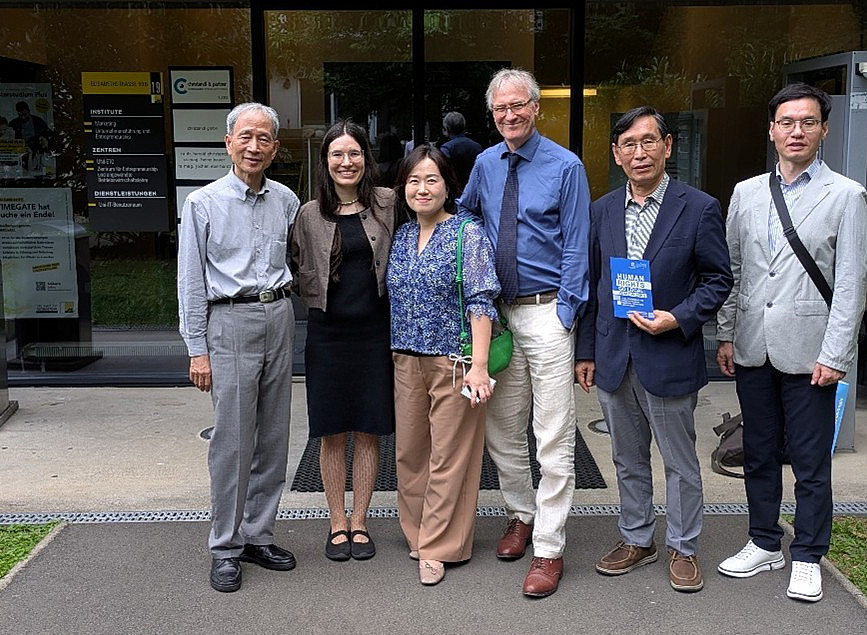Engagement at Graz City Hall
The delegation, led by Yongsu Park, Director General of the Municipal Office for Democracy, Human Rights, and Peace, included Professor Gyonggu Shin and Minsu Kim from the Gwangju International Center, as well as Youngjin Lee from the Human Rights and Peace Office. They were received at Graz City Hall by Health and Integration Councilor Robert Krotzer on behalf of Mayor Elke Kahr together with representatives of the Centre. The meeting fostered fruitful discussions on various topics, revealing many similarities between the two cities. Notably, Gwangju is recognized as the first city in Asia to become a Human Rights City, paralleling Graz's status as the first Human Rights City in Europe.
City Councilor Robert Krotzer outlined Graz's approach as a city of peace and human rights, emphasizing the importance of "bringing human rights into the daily lives of the people", particularly in areas such as housing and health. Gyonggu Shin and Yongsu Park reflected on significant political events in Korea, including the martial law crisis and the Gwangju Uprising, also known as May 18 Democratization Movement. These past events, especially the Gwangju Uprising, while tragic, have fostered a strong awareness for democratic issues within the Korean civil society. This remarkable civil engagement has generated significant interest among the representatives of Graz. For further details on the visit, there also exists a report published on the City of Graz's website. To learn more about the civic and institutional response to the Korean martial law crisis of 2024 Gyonggu Shin has written an interesting article “Martial Law Crisis in South Korea: Does the Past Help the Present? – May 2025”, which was published online.
Strengthening Collaboration: Exploring Future Opportunities at the UNESCO Centre
Following lunch, discussions continued on how to strengthen the partnership between Graz and Gwangju. Potential collaborations between the University of Graz and Chonnam National University, as well as between the two cities, were explored. Both cities place a strong emphasis on higher education and are part of the UNESCO Creative Cities Network – Graz as a UNESCO City of Design and Gwangju as a UNESCO Creative City of Media Arts. They share a rich cultural landscape and host numerous events and facilities, particularly in contemporary art. Economic aspects were also addressed, with both cities being recognized for their automobile production and innovative business approaches. Graz stands to gain valuable insights from Gwangju, particularly in the field of artificial intelligence.
A significant focus of the discussions was on enhancing collaboration in the area of human rights. Participants explored linkages to major human rights events, such as the World Human Rights Cities Forum in Gwangju and the Academy and Conference “Human Rights Go Local: What Works”. These platforms provide vital opportunities to engage in meaningful dialogue and share best practice examples in promoting human rights at the local and regional levels. Furthermore, the discussions emphasized the importance of amplifying the role of local and regional entities as direct partners in the human rights movement. By fostering grassroots initiatives and empowering communities, Graz and Gwangju can work together to ensure that human rights are not only recognized but actively integrated into the daily lives of their citizens.
It is reassuring to know that the International Centre has a vital partner for human rights and democracy on the other side of the world. With our shared goals and commonalities, we are confident that this partnership will continue to flourish in the future.
